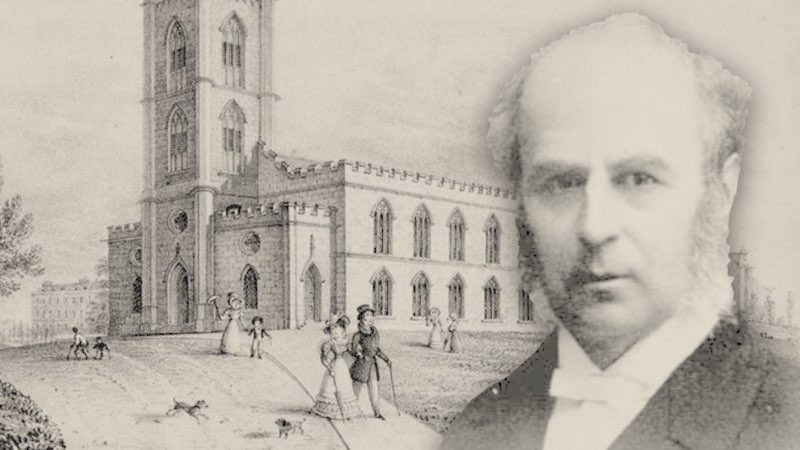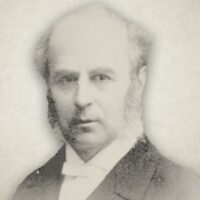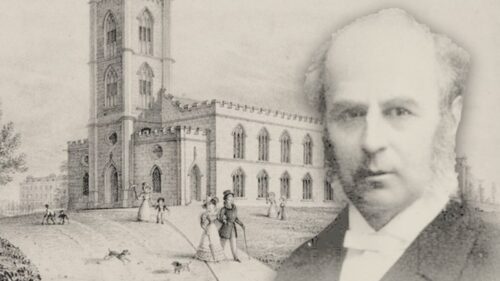
James Ormiston’s Appraisal Of Talbot Greaves And His Ministry
Gospel Magazine April 1899:
A Pulpit Reference
At Moxy-le-port Church, Bristol, on the Sunday next after the funeral, the Rector (the Rev. James Ormiston) preached a special sermon on the subject of the late Rev. Talbot Greaves’s life and ministry. The text taken was 2 Timothy 1:12, “For the which cause I also suffer these things; nevertheless, I am not ashamed, for I know whom I have believed, and am persuaded that He is able to keep that which I have committed to Him against that day.” One subject, Mr. Ormiston observed, has very largely occupied their minds during the last week—the sudden and tragic home-call of God’s faithful servant, their loved friend, the Rev. Talbot Greaves. Less than twelve months ago Mr. Greaves took for his text in Mary-Ie-port pulpit the passage which has been chosen for the present occasion. In selecting a text for a memorial sermon, he (the preacher) felt that no more appropriate Scripture could be found, as aptly outlining the character, ministry, and experience of Mr. Greaves, than that apostolic passage.
In the first place, they could not fail to recognize the fact that Mr. Greaves’s character—as Divine grace had formed it—was distinctly Pauline. His distinguishing spiritual qualities were manly, energetic, strong. There was nothing effeminate in his character. His model was found in the words of the great Apostle of the Gentiles, “Stand fast in the faith, quit you like men, be strong.” He was too resolute in the truth to be carried away by religious fashions and winds of doctrine. He knew whom he believed and trusted, and clave to Him fully. To compromise with the times, and to accommodate himself to the occasion, were methods he could never adopt. He had counted the cost of following Christ, and witnessing to His name and truth In his ministry he displayed remarkable fearlessness. He advocated, without any apologies, the old and true Gospel of the grace of God. He was “not ashamed” to proclaim, in the most clear and forcible language, the more humbling doctrines of the Gospel, such as the election of sinners to salvation, and the sovereign operations of the Holy Spirit. His own faith was clear. He knew Christ as his personal Redeemer, and exalted Him accordingly. His persuasion of the efficacy of the free grace of God was so grounded and settled that his testimony was marked by an authority which gave deep reality and tone to his pulpit and platform utterances. His attachment to the Evangelical and Protestant principles on which the Church of the Reformation is based was loyal and firm. Many of the addresses which he delivered at the Clifton Conferences were of great value, but probably that which he delivered last October, under exceptional circumstances, was the most precious of all. In experience, Mr. Greaves was one who undoubtedly suffered temporal and ecclesiastical loss for the truth’s sake. “For the which cause I also suffer these things.” He was consistently willing to endure hardness for Christ’s name’s sake. Fidelity to Evangelical and Protestant principles barred his way to those descriptions of Church preferment which are usually understood to be honours and dignities. If brilliant talents, competent learning, social position, faithfulness to the doctrinal standards of the Church, and munificent support of Church work at home and abroad constituted a sufficient claim on the consideration of the administrators of high ecclesiastical patronage, then the treatment meted out to God’s faithful servant, Mr. Greaves, amounted to a grave departure from the obligations inseparable from the trusteeship vested in the advisers of the Crown and the Episcopal Bench. This injustice, however, was borne unmurmuringly by the eminent minister of Christ, whose departure they mourned that day, and he now rested from toil and strife in the presence of his Lord and Master.
Talbot Greaves (1826-1899) was a High-Calvinist Anglican preacher. In 1850 he was ordained Bishop of Lichfield to the Curacy of Mayfield. In 1854 he assisted Dean Close at the parish church in Cheltenham. In 1856 the Simeon Trustees appointed him to the living of Melcombe Regis, Dorsetshire, laboring for twenty-five years. In 1881 he became Vicar of Clifton.




